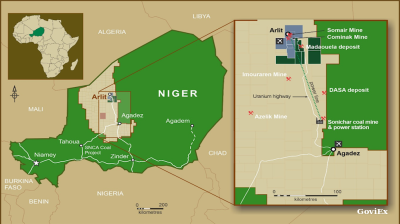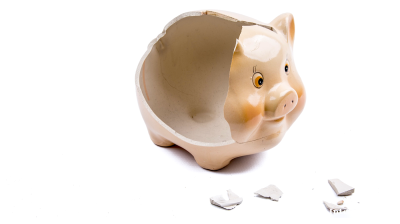“Ukraine is part of Russia,” Russian President Vladimir Putin said in his keynote address at this year’s St Petersburg International Economic Forum (SPIEF) plenary session on June 20, putting the cat amongst the pigeons.
Putin repeated that he considered Russians and Ukrainians to be “one people” and "in that sense the whole of Ukraine is ours" (video), causing outrage amongst Ukraine’s supporters and a round of applause from the delegates at SPIEF.
"We have a saying, or a parable," Putin said during the plenary panel session. "Where the foot of a Russian soldier steps, that is ours."
Ukrainian Foreign Minister Andrii Sybiha shot back: "Putin's cynical statements demonstrate complete disdain for U.S. peace efforts," in a post on social media. “Wherever a Russian soldier sets foot, he brings along only death, destruction, and devastation.”
The Russian president added the caveat that he was not questioning Ukraine's independence or its people's striving for sovereignty, but he went on to point out that when Ukraine declared independence as the Soviet Union fell in 1991 it had also declared itself as a neutral power. Russia’s key demand in the conflict is that Ukraine return to neutrality and give up its Nato ambitions which were written into the constitution in 2014.
After initially indicating last November there was “limited wiggle room” for concessions on the Kremlin’s maximalist demands for territorial claims to the five regions Russia has annexed, including the Crimea, Putin has since hardened his position and gone back to what is tantamount to Ukraine’s capitulation with the main points: no Nato for Ukraine and a return to neutrality; conceding Russia's de jura control over occupied territory; and strict limits on the size of Ukraine’s military.
In response to the idea that the war in Ukraine is “killing” the Russian economy, Putin quote Mark Twain, saying, “As a well-known writer once said: ‘The reports of my death are greatly exaggerated.’”
Best offer Ukraine can get
At a parallel United Nations Security Council (UNSC) meeting on June 20, Russia’s ambassador Vasily Nebenzya said the Kremlin’s current offer that “takes the realities on the ground” into account is “the best offer Ukraine can get today,” referring to the terms outlined at a meeting in Istanbul on June 3.
"During the direct Russian-Ukrainian talks that were held, we presented our memorandum on a peaceful settlement. It consists of two parts: conditions for a comprehensive long-term peace and conditions for a ceasefire," Nebenzya said. "This is the best offer Ukraine can get today. We advise accepting it as things will only get worse for Kyiv, from here on out.”
Ukrainian President Volodymyr Zelenskiy has referred to the new Istanbul terms as nothing as an “ultimatum” and rejected them out of hand, calling instead for Russia to respect the 30-day ceasefire proposal floated by the Trump administration in March.
Putin said that he is still willing to meet with Zelenskiy personally and Nebenzya noted that the two sides should resume direct peace talks in Turkey after June 22, despite Russia's intensified drone and missile attacks on Ukraine, The Kyiv Independent reports.
Other delegates at the UNSC meeting repeated calls for Russia to halt the increased missile barrage on Ukraine.
"We call on Russia to agree to an unconditional ceasefire. Russia initiated this war; we call on Russia to end it," Barbara Woodward, the UK's Permanent Representative to the UN, said.
Despite the hopes that a ceasefire deal could be done, brokered by US President Donald Trump, those hopes have been quashed by the widening positions between the two sides and as bne IntelliNews opined recently, the ceasefire talks are currently dead in the water.
Attendance down
Putin used the speech to reiterate his standard motives of restructuring the Russian economy and the creation of a multipolar world order. His speech was followed by a panel discussion with several other political leaders, including Indonesian President Prabowo Subianto, Chinese Vice Premier Ding Xuexiang, Bahraini Prince Nasser bin Hamad Al-Khalifa, and South African Deputy President Paul Mashatile, highlighting Putin’s big bet on the Global South Century where he is counting on the world’s emerging markets to replace the West as Russia’s main trading and investment partner.
The forum runs between June 18 and 21 but attendance at Russia’s premier investment confab has dropped considerably in recent years. Western guests were few and far between, replaced by delegates from the Global South and the Middle East in particular.
This year, the Kingdom of Bahrain and the Indonesian President Prabowo Subianto, who declined an invitation to this week’s G7 Summit and chose to attend SPIEF instead, were the forum’s guest of honour, with delegates mostly arriving from China, Vietnam, Saudi Arabia, African countries where Russia has a military presence, and Taliban-administered Afghanistan.
The Kremlin has expended significant diplomatic efforts to improve relations with the Trump administration, and the hope was that US guests would showcase how the country’s international isolation is easing. It didn’t happen. The head of AmCham Robert Agee was there, and a “Russia-USA” panel was organized with American participants, but no heavyweight business figures, that used to be a regular feature at SPIEF, bother to show up.
Economy in trouble?
Apart from the usual announcements of regional investment projects with the participation of state-owned companies timed to coincide with the forum, little of note was actually announced.
Foreign investment has fallen off to next to nothing and that is causing economic problems as the economic management team debated on its closely watched annual panel is Russia’s economy cooling or falling into recession.
Tellingly, a week before SPIEF kicked off presidential advisor Maxim Oreshkin, one of Russia’s economic policy leading lights, said Russia's current economic model has exhausted its capacity to drive growth and must be restructured to ensure future development.
In a bid to save money, several governors chose not to attend the forum at all and scale down their region’s representative pavilions, BMB Russia reported.
News

US suspends strategic dialogue with Kosovo amid political deadlock
Washington singles out Kosovo's caretaker PM, leftwing nationalist Albin Kurti, who has a strained relationship with the Trump administration.

Lukewarm support for Polish UN vote condemning Russian drone incursion
Only 46 out of 193 UN member states signed a joint UN declaration on September 12, denouncing Russia’s alleged involvement in a drone incursion into Polish airspace two days earlier.

GoviEx, Niger extend arbitration pause on Madaouela uranium project valued at $376mn
Madaouela is among the world’s largest uranium resources, with measured and indicated resources of 100mn pounds of U₃O₈ and a post-tax net present value of $376mn at a uranium price of $80 per pound.

Brazil’s Supreme Court jails Bolsonaro for 27 years over coup plot
Brazil’s Supreme Court has sentenced former president Jair Bolsonaro to 27 years and three months in prison after convicting him of attempting to overturn the result of the country’s 2022 election.



